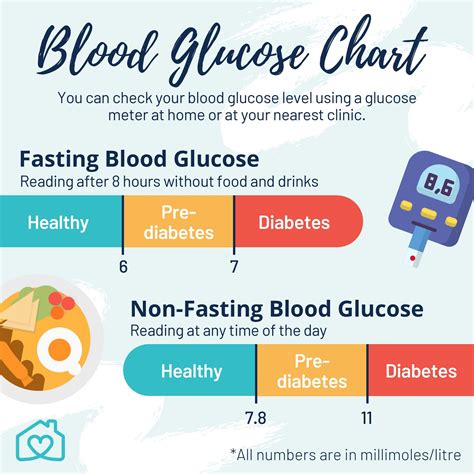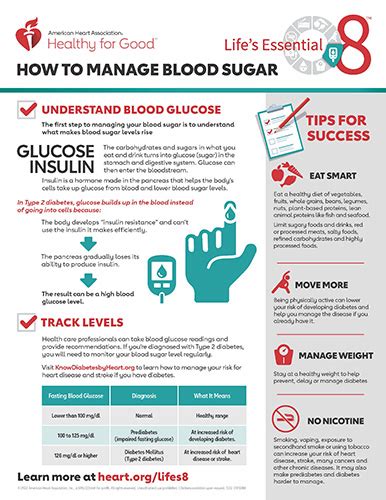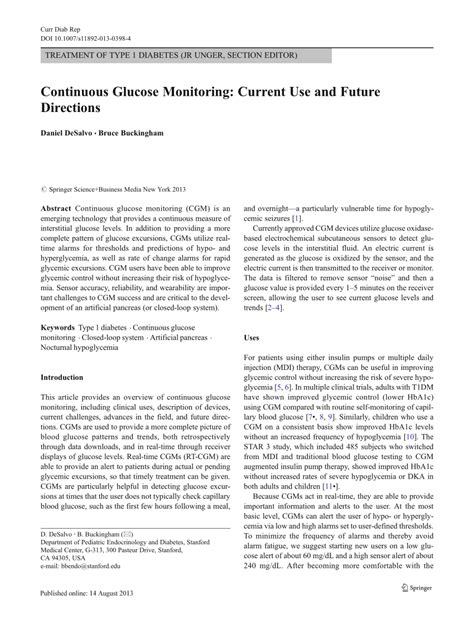Intro
Manage blood sugar with 7 tips to control glucose levels, including diet, exercise, and monitoring, to maintain healthy insulin levels and prevent diabetes complications, stabilizing your blood glucose naturally.
Maintaining healthy glucose levels is crucial for overall well-being, as it directly impacts energy levels, weight management, and the risk of developing chronic diseases like diabetes and heart disease. Understanding how to manage glucose levels is essential for individuals looking to improve their health and reduce the risk of these conditions. With the increasing prevalence of diabetes worldwide, it's more important than ever to educate oneself on the best practices for glucose level management. By adopting a few simple yet effective strategies, individuals can significantly improve their glucose control and enhance their overall health.
Effective glucose level management involves a combination of dietary changes, lifestyle modifications, and, in some cases, medication. It's vital to approach this topic with a comprehensive understanding, recognizing that small, consistent changes can lead to significant long-term benefits. From the importance of regular physical activity to the impact of stress on glucose levels, there are numerous factors to consider when developing a personalized plan for managing glucose levels. Moreover, staying informed about the latest research and guidelines can provide valuable insights into optimal glucose management strategies.
The journey to better glucose control begins with education and awareness. By understanding how different foods, activities, and habits influence glucose levels, individuals can make informed decisions that support their health goals. This includes recognizing the signs of high or low blood sugar, knowing how to monitor glucose levels effectively, and being aware of the potential complications of poorly managed glucose levels. With the right knowledge and support, individuals can take proactive steps towards maintaining healthy glucose levels, reducing their risk of related health issues, and improving their quality of life.
Understanding Glucose Levels

Factors Influencing Glucose Levels
Several factors can influence glucose levels, including diet, physical activity, stress, and sleep. Foods high in simple carbohydrates, such as white bread and sugary snacks, can cause a rapid increase in glucose levels. Regular physical activity, on the other hand, improves insulin sensitivity, helping to lower glucose levels. Stress and lack of sleep can also have a negative impact, as they can increase the production of stress hormones like cortisol, which can raise glucose levels.Strategies for Managing Glucose Levels

- Dietary Changes: Focus on whole, unprocessed foods like vegetables, fruits, whole grains, lean proteins, and healthy fats. These foods are rich in fiber, vitamins, and minerals, and tend to have a lower glycemic index, meaning they cause a slower and more gradual increase in glucose levels.
- Regular Physical Activity: Aim for at least 150 minutes of moderate-intensity aerobic exercise, or 75 minutes of vigorous-intensity aerobic exercise, or a combination of both, per week. Regular physical activity improves insulin sensitivity and helps lower glucose levels.
- Stress Management: Engage in stress-reducing activities like yoga, meditation, or deep breathing exercises. Chronic stress can raise glucose levels, so finding healthy ways to manage stress is crucial.
- Adequate Sleep: Ensure you get 7-8 hours of sleep per night. Poor sleep quality and duration can disrupt hormones that regulate glucose levels, leading to increased glucose levels.
- Monitoring Glucose Levels: Regularly check your glucose levels, especially if you have diabetes. This helps you understand how different foods and activities affect your glucose levels and make informed decisions about your diet and lifestyle.
- Stay Hydrated: Drinking enough water is essential for overall health and can help regulate glucose levels. Sometimes, thirst can be mistaken for hunger, leading to unnecessary snacking and a spike in glucose levels.
- Limit Processed and High-Sugar Foods: These foods can cause a rapid spike in glucose levels. Limiting their consumption can help maintain healthier glucose levels.
Benefits of Effective Glucose Management
Effective management of glucose levels offers numerous health benefits, including reduced risk of diabetes complications, improved energy levels, weight management, and a lower risk of heart disease. By maintaining healthy glucose levels, individuals can also improve their mental health and overall quality of life. It's essential to work closely with a healthcare provider to develop a personalized plan that suits your specific needs and health goals.Challenges and Solutions

Role of Technology in Glucose Management
Technology has become a valuable tool in glucose management, offering a range of devices and apps that can help monitor glucose levels, track food intake, and provide reminders for medication and physical activity. Continuous glucose monitors (CGMs) and flash glucose monitors are examples of devices that can provide real-time glucose level data, helping individuals make more informed decisions about their diet and lifestyle.Future Directions in Glucose Management

Conclusion and Next Steps
In conclusion, managing glucose levels is a critical aspect of maintaining overall health and preventing chronic diseases. By understanding the factors that influence glucose levels and implementing effective strategies for glucose management, individuals can take significant steps towards improving their health and well-being. It's essential to stay informed, seek support when needed, and work closely with healthcare providers to develop personalized plans that address specific health needs and goals.As you continue on your journey to better glucose control, remember that small changes can add up over time. Stay committed to your health goals, and don't hesitate to reach out for support when you need it. With the right approach and mindset, you can achieve healthier glucose levels and enjoy the many benefits that come with improved overall health.
What are normal glucose levels?
+Normal glucose levels typically range from 70 to 140 mg/dL, though these levels can vary slightly depending on the time of day and recent food intake.
How often should I check my glucose levels?
+The frequency of checking glucose levels depends on your health status and the advice of your healthcare provider. Generally, individuals with diabetes may need to check their levels several times a day.
What are the symptoms of high glucose levels?
+Symptoms of high glucose levels can include increased thirst and urination, fatigue, blurred vision, and slow healing of cuts and wounds.
We hope this article has provided you with valuable insights and practical tips for managing your glucose levels. If you have any further questions or would like to share your experiences with glucose management, please don't hesitate to comment below. Your feedback is invaluable, and we're always here to support you on your health journey. Consider sharing this article with friends and family who might benefit from this information, and let's work together towards a healthier future for all.
